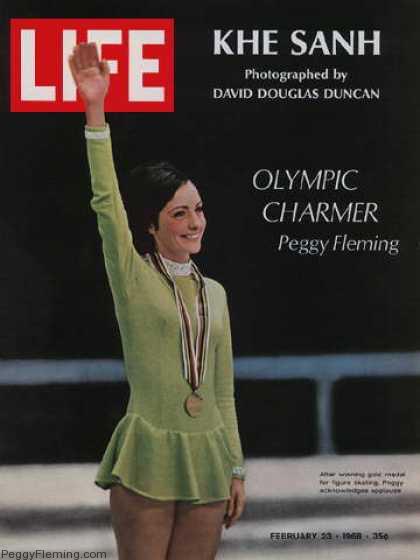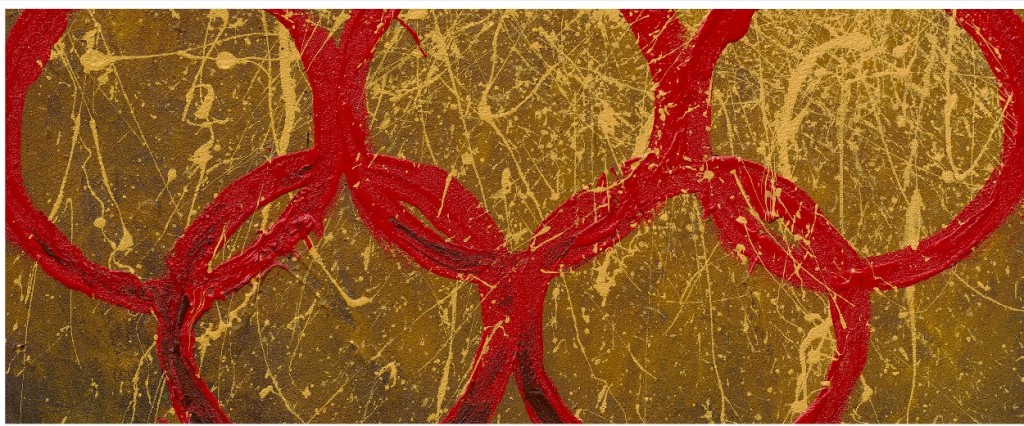Serena Jameka Williams was born on September 26, 1981 in Saginaw, Michigan. illiams began playing tennis at an early age, enduring daily two-hour practices with her father at age three. In 1995, Serena turned pro, and, along with her sister Venus, enjoyed a run of high-profile victories. In 2009, Serena was fined and placed on probation for allegedly threatening a lineswoman, but she quickly moved past the incident. After a series of health scares in 2011, Williams beat Agnieszka Radwanska at Wimbledon 2012, claiming her fifth Wimbledon singles title. At the 2012 Summer Olympic Games, she won two gold medals, in women's doubles and women's singles—her first singles gold medal. In June 2013, Williams won her second French Open title against defending champion Maria Sharapova. She picked up another U.S. Open title that September.
The youngest of Richard and Oracene Williams's five daughters, Serena Williams, along with her sister Venus, would eventually dominate the sport at various times throughout her career, capturing 15 Grand Slam singles and 13 Grand Slam doubles titles.
Serena's father—a former sharecropper from Louisiana determined to see his two youngest girls succeed—used what he'd gleaned from tennis books and videos to instruct Serena and Venus on how to play the game. At the age of 3, practicing on a court not far from the family's new Compton, California, home, Serena withstood the rigors of daily two-hour practices from her father.
The fact that the family had relocated to Compton was no accident. With its high rate of gang activity, Richard Williams wanted to expose his daughters to the ugly possibilities of life "if they did not work hard and get an education." In this setting, on courts that were riddled with potholes and sometimes missing nets, Serena and Venus cut their teeth on the game of tennis and the requirements for persevering in a tough climate.
By 1991, Serena was 46-3 on the junior United States Tennis Association tour, and ranked first in the 10-and-under division. Sensing his girls needed better instruction to become successful professionals, he moved his family again—this time to Florida. There, Richard let go of some of his coaching responsibilities, but not the management of Serena's and Venus's career. Wary of his daughters burning out too quickly, he scaled back their junior tournament schedule.
In 1995, Serena turned pro. Two years later, she was already No. 99 in the world rankings—up from 304 just 12 months before. A year later, she graduated high school, and almost immediately inked a $12 million shoe deal with Puma. In 1999, she beat out her sister in their race to the family's first Grand Slam win, when she captured the U.S. Open title.
It set the stage for a run of high-powered, high profile victories for both Williams sisters. Over the next decade, Serena alone would win 23 Grand Slam titles—including 10 doubles championships with her sister, Venus Williams.
With their signature style and play, Venus and Serena changed the look of their sport as well. Their sheer power and athletic ability overwhelmed opponents, and their sense of style and presence made them stand-out celebrities on the court.
Proving to have much more than just tennis clout, Serena expanded her brand into film, television, and fashion. She developed her own "Aneres" line of clothing, and in 2002 People magazine selected her as one of its 25 Most Intriguing People. Essencemagazine later called her one of the country's 50 Most Inspiring African-Americans. She's also made television appearances, and lent her voice to shows such as The Simpsons.
In 2002, she won the French Open, the U.S. Open, and Wimbledon, defeating Venus in the finals of each tournament. She captured her first Australian Open in 2003, making her one of only five women players to have complete grand slam sets. The win also fulfilled her desire to finish off what she'd dubbed "The Serena Slam." In 2008, she won the U.S. Open and teamed with Venus to capture a second women's doubles Olympic gold medal at the Beijing Games.
But Serena has had her scrapes and losses. In 2003, her sister Yetunde Price was murdered in Los Angeles, California. Three years later, Serena seemed burned out. Bitten by injuries, and just a general lack of motivation to stay fit or compete at the same level she once had, Serena saw her tennis ranking slump to 139.
Serena credits her faith as a Jehovah's Witness, as well as a life-changing journey she made to West Africa for renewing her pride and competitive fire. By 2009, Williams had released a new autobiography, Queen of the Court, and won her place back atop the world's rankings, winning both the 2009 Australian Open singles (for the fourth time) and Wimbledon 2009 singles (for the third time). She also won the doubles matches at both the Australian Open and Wimbledon that year.
But not everything went smoothly. Williams made headlines in September of that year, when she blasted a lineswomen for a foot-fault called near the end of a semi-final loss to eventual champion Kim Clijsters at the U.S. Open. The profanity-laced outburst included finger pointing and, according to the lineswoman, an alleged threat from Serena against her life.
Williams downplayed what happened, refuting the allegation that she'd threatened the woman. But the incident did not go over well with the tennis viewing public, nor the U.S. Tennis Association, which fined her $10,000 on the spot. Two months later, she was placed on two-year probation and ordered to pay another $82,500 to the Grand Slam committee for the episode&mdashthe largest punishment ever levied against a tennis player.
By early 2010, however, Serena was doing her best to move past the incident, gearing up for the upcoming Australian Open. Sure enough, in 2010, she won the Australian Open singles and doubles matches, as well as her fourth Wimbledon singles championship.
In 2011, Williams suffered a series of health scares, after doctors found a blood clot in one of her lungs, which kept her away from tennis for several months. Following several procedures, including one to remove a hematoma, speculation rose as to whether Williams would retire from the sport. Her health had improved by September 2011, however, and Williams competed at the U.S. Open, beating Victoria Azarenka to place second overall in the singles tournament.
Several months later, Williams beat Victoria Azarenka again in the Wimbledon 2012 semfinals,
and went on to defeat 23-year-old Agnieszka Radwanska in an emotional three sets at Wimbledon 2012, claiming her fifth Wimbledon singles title. Following the win, Williams rushed to her family in the stands, with tears in her eyes, and hugged them for several seconds. In a post-Wimbledon interview with ESPN, she was asked whether she thought she could top the win, and answered: "Are you kidding? The [2012] U.S. Open, the Australian Open, the French Open, Wimbledon 2013."
Williams continued her winning streak to her next Grand Slam event. In September 2012, she beat out rival Victoria Azarenka to take the singles title at the U.S. Open. According to USA Today, Williams wasn't sure that she'd emerge victorious. "I honestly can't believe I won. I was really reparing my runner-up speech, because I thought, 'Man, she's playing so great.'"
By this time, Williams had captured 15 Grand Slam singles titles—surpassing tennis star Pete Sampras's record of 14 titles—as well as 13 Grand Slam doubles titles. "I would like to leave a mark," Williams once said about her standing in the tennis world. "I think obviously I will, due to the fact that I'm doing something different in tennis. But I don't think I could ever reach something like a Martina Navratilova—I don't think I'd ever play that long—but who knows? I think I'll leave a mark regardless."
In August 2012, at the 2012 Summer Olympic Games, Williams defeated Maria Sharapova to take her first gold medal in women's singles. The next day, she and sister Venus won gold in women's doubles, against Czech Republic tennis stars Andrea Hlavackova and Lucie Hradecka. Williams is now a four-time Olympic gold medalist.
In June 2013, Williams took her second French Open title—as well as her 16th Grand Slam singles title—in a 6-4, 6-4 victory over defending champion Sharapova. "I'm still a little bit upset about that loss last year," Williams said in an interview with ESPN following the match. "But it's all about, for me, how you recover. I think I've always said a champion isn't about how much they win, but it's about how they recover from their downs, whether it's an injury or whether it's a loss."
Nearly one month later, Williams competed at Wimbledon, where she suffered a shocking loss (6-2, 1-6, 6-4) in the fourth round against German player Sabine Lisicki on July 1, 2013. The upset marked the end of a 34-match winning streak by Williams, a five-time champion. Of the defeat, Williams told Sports Illustrated, "I don't think it's a huge shock. [Lisicki] is a great player. Her ranking has no effect on what she should be. She should be ranked higher.
She just has a super, super game to play well on grass."
At the U.S. Open, Williams made a strong showing. She knocked out her younger rival Sloane Stephens in the fourth round to advance to the quarterfinals. Williams had lost to Stephens earlier in the year at the Australian Open. Continuing her winning streak,she defeated Victoria Azarenka to clinch the U.S. Open title. It was the second year in a row that the pair had faced off in the finals.
http://serenawilliams.com/about/
https://www.goodreads.com/author/show/157634.Serena_Williams?from_search=true
http://www.biography.com/people/serena-williams-9532901
http://en.wikipedia.org/wiki/Serena_Williams

























